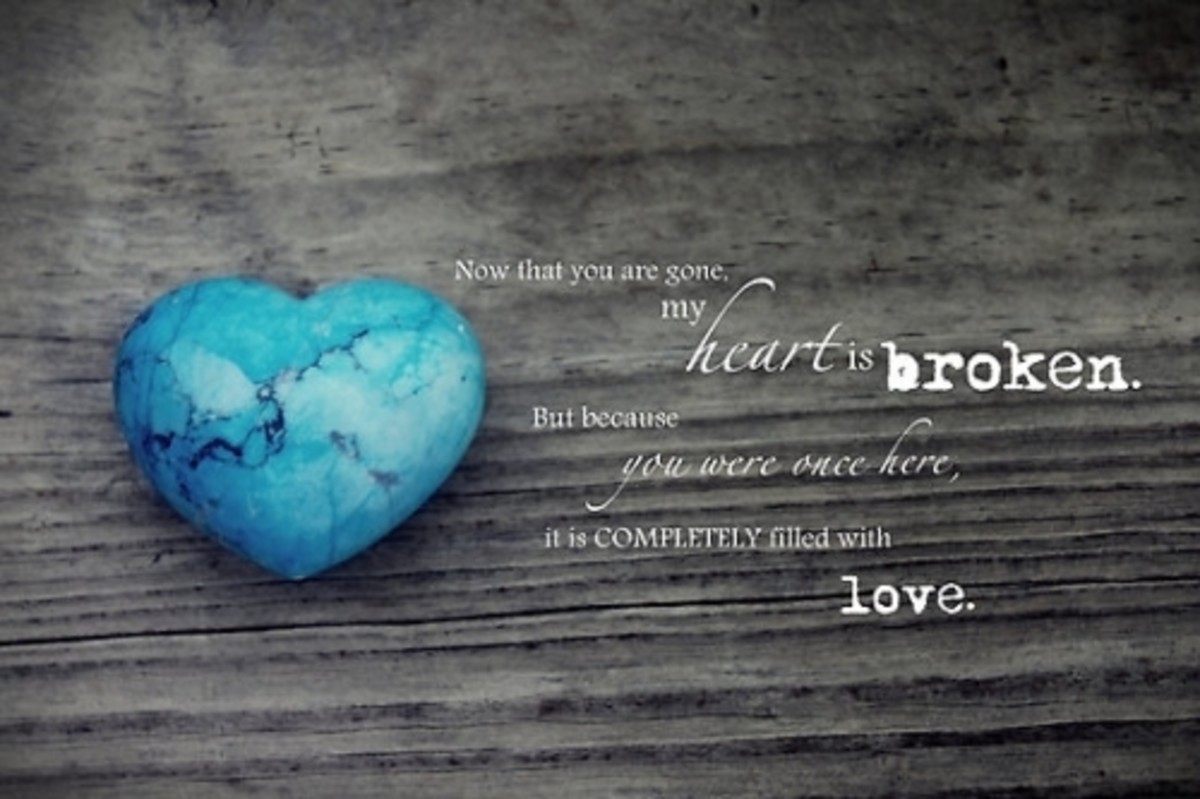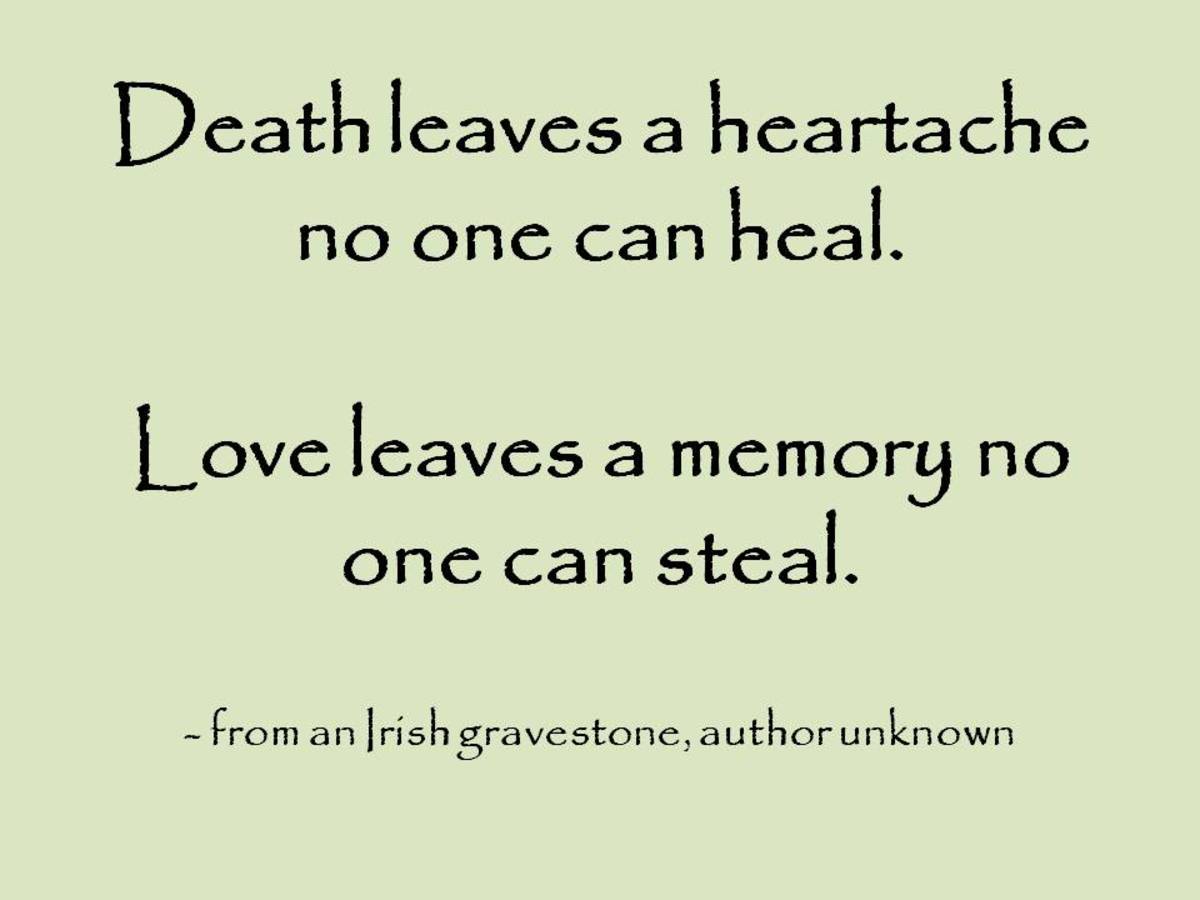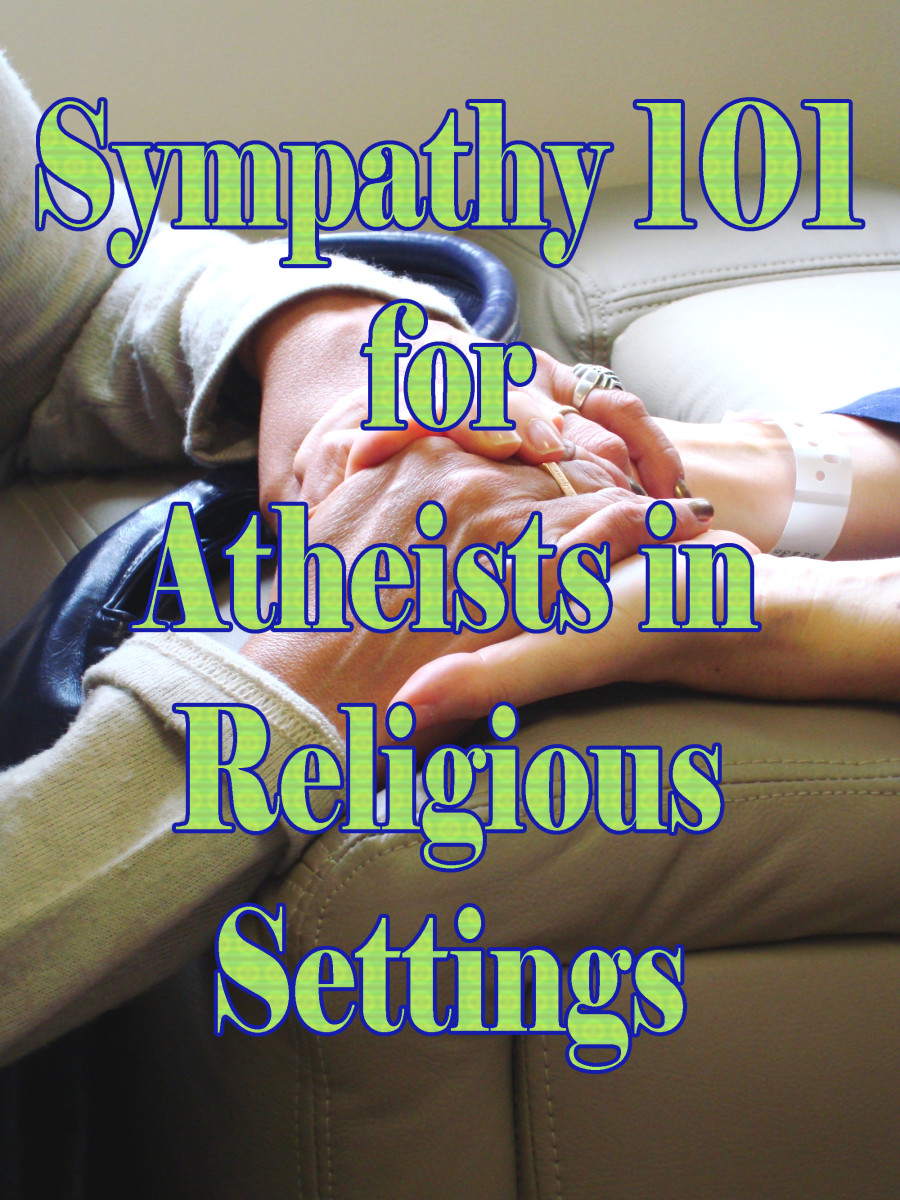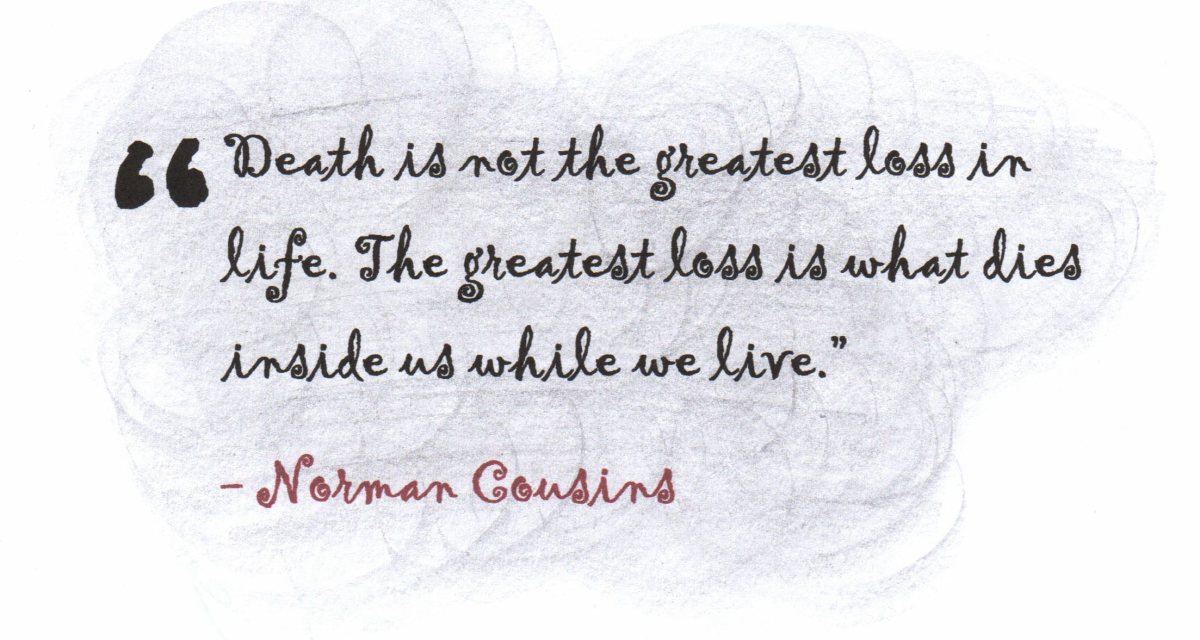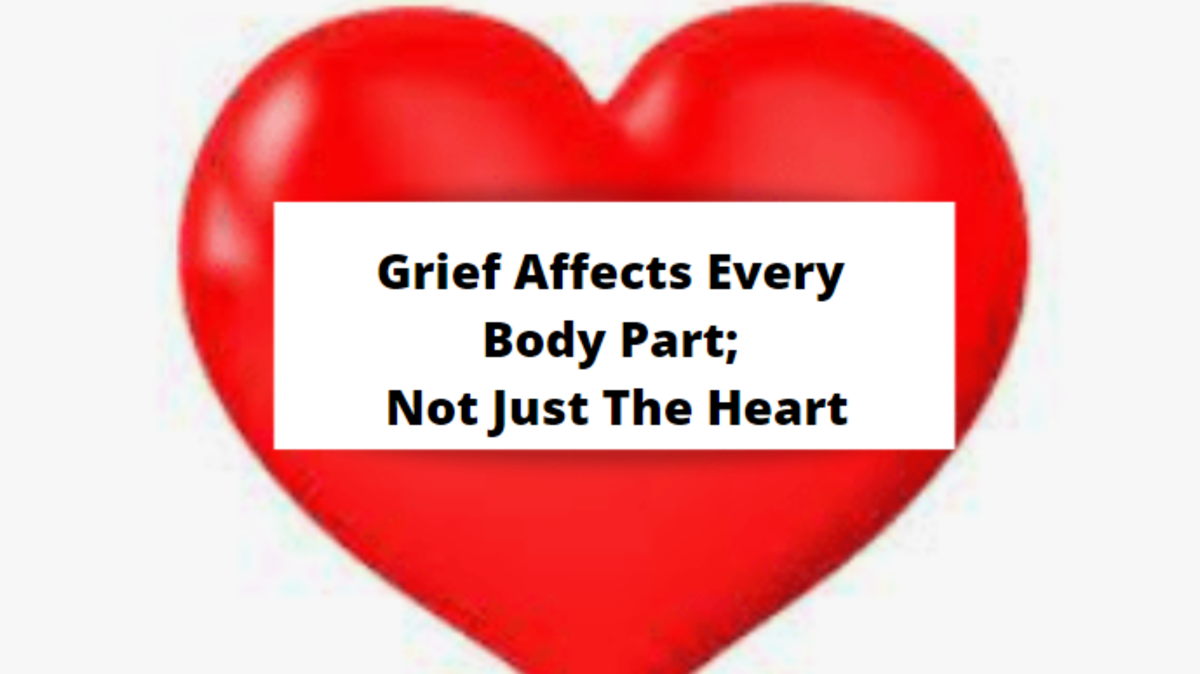Coping With Untimely Death

Death is never easy to cope with, but can prove to be even more difficult when the life taken away was untimely. It's difficult to cope with, or to understand, the loss of a young life, simply because young people aren't meant to pass away.
In my short 27 years on this earth, I have experienced the death of four great friends. My first encounter with death was when I was 19, when a friend had fallen in his bathroom and hit his head. My second friend passed away as the result of getting hit by a drunk driver on his way home from work one night. Another friend had suffered schizophrenia and had accidentally overdosed on his medication after forgetting he already took the first dose. Most recently, a friend had lost his short, yearlong battle to cancer.
It's difficult to lose a loved one at such a young age. When you're young, it's easy to feel immortal, that nothing can stop anyone from living, which is what makes untimely deaths so difficult to cope with and accept. It's easy to get frustrated, angry, grieved, sad, guilt stricken, lost, and isolated when confronted with the untimely death of a loved one. It's okay to feel these things because they are perfectly natural. As human beings, we are full of emotions that will emerge, whether they're easy to deal with or not.
When dealing with the untimely loss of a loved one, there are many ways to cope and to help ease the pain with time. I'm not saying that all of these methods will work for everyone, because everyone copes with death in different ways, but for those who are lost and need help with a place to start or for those who need extra guidance for coping, here is some advice.

1. Remember that everyone grieves differently. There is no right or wrong way to grieve the loss of a loved one, so do what comes best for you. For some people, they may cry a lot. It doesn't mean that you need to cry if you don't feel like crying. Some people may want to wear a particular color of clothing, some people may try to do things to remember the person lost, and some people try to forget the person they lost. Grieving is a very personal process, as it is between you and the person you have lost. So long as you are grieving in a healthy way (i.e. no thoughts of self-inflicted harm, suicide, inflicting harm onto others, or the such), do what you feel is necessary or what comes natural to you. Just take everything one day at a time, don’t rush into anything or do anything that makes you uncomfortable. Every day will begin as a battle, but every little step you take is a victory towards recovery and moving forward with life.
2. Spend time alone with your thoughts. It's good to have some quiet reflection. Some people may find that being in nature brings peaceful and quiet reflection, either by going for a walk or sitting in a park. If you're a religious person, find solace in a religious sanctuary. Some people like to quietly reflect in areas where they are surrounded by people, like a cafe or a book store. Again, there is no right or wrong way to go about this. Allowing yourself to spend time with quiet reflection of what had happened takes you away from the distractions, it allows you to think about that person, and also allows you to feel your emotions.
3. Talk with someone you trust. Letting your words and feelings pour out of you can help you release some emotions and thoughts you have locked inside. Maybe you want to talk about the memories you've had with that person. Maybe you want to talk about how the loss has made you feel. No matter what it is you want to talk about, it's good to let it out. Ask to speak with a family member or friend that you trust. If you just want them to listen to you without saying anything, let them know. If you want them to offer you advice, ask for it. When you speak with someone you trust, you'll likely let more out because you know that person won't tell anyone else or make you feel belittled for feeling these things. Find a place to talk that you feel safe in, somewhere where you know there won't be interruptions, loud noises, or something that makes you uncomfortable. Also, have items that are comforting while you talk. Hot beverages, like tea or hot chocolate, are nice to have. Tissues are also nice to have around. If you have an item, like a blanket or a stuffed animal, that brings you comfort, hold it while you talk.
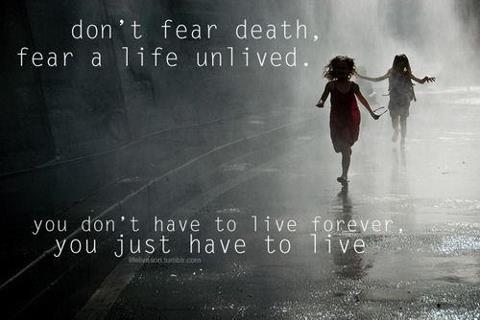
4. The only way to get past something is to let it flow through you. A girlfriend gave me this advice once when I was in complete denial over a loss. I didn't like feeling sad and upset, so I tried to find ways around my feelings. My good friend told me that the only way I was going to get through the grieving process and find peace was to let my emotions flow through me, no matter how uncomfortable they may be. Grief is not a comfortable feeling. You will cry, you will feel confused and lost, you will be angry, you will feel exhausted, and you will feel shattered. But every time you allow yourself to feel those emotions, a part of you grows stronger and heals just a little bit more. Over time, that strength will build up enough to be able to find peace and prepare you to move forward.
5. Partake in physical exercise and eat healthily. This may be one of the most difficult ways to cope with loss, but it is also very effective. When grieving, it becomes easy to want to drink a lot, eat unhealthy foods, maybe not eat at all, spend time lying around and sleeping, smoking, or watching a lot of movies and television. This is not only unhealthy for your body, but also does not aid in the healing process, offering a temporary band aid to issues that will eventually have to be addressed. When you're experiencing the loss of a loved one, the motivation and energy to do much is minimal. Forcing yourself to physically take care of yourself is a great way to ease the grieving process. Taking time to exercise can help you clear your mind and increase your energy. Maybe learn a new recipe to help ease your mind and nourish your body.
Studies have proven that physical exercise and health awareness is incredibly beneficial to the grieving process, as endorphins released into your body enhance your mood, give you more energy to take on the day, and keep you in good health. Many people who are going through a grieving process may feel a loss of control, and that is perfectly natural. By exercising and eating healthily, the mind becomes focused on the task ahead of them, especially in more intense tasks, such as yoga, running, biking, or swimming. When keeping your focus on those tasks, you obtain control, which aids in allowing yourself to have a sense of purpose. The energy released during exercising will create more energy to make it through the day while also washing you over with a sense of calm.

6. Don't dwell on the past. It's easy to look back on a situation and see how it was that you could have done things differently for a potentially different outcome. There is nothing that can undo the past, no matter how much you wish it. In many instances, there was nothing that could have been done to prevent the death from occurring, so feeling guilt or blaming yourself for a situation is not a healthy way to cope. While coping with the untimely death of a loved one, try to always remember that the past cannot be undone and try to make strides in moving forward with the healing process. For many people, it's living in the present and moving forward that can prove to be the most difficult while coping. Try to remember that dwelling on the past will not change the present, but dwelling will put a halt to your ability to live in the present and move forward.
While you don't want to dwell on the past, try to always remember, love, and cherish the moments you had with that person. Cherish the fond memories you shared with the person and remember the way they made you smile. Reflect on how your life has been impacted from your loved one. Find gratitude that your life's journey was able to cross paths with your loved one's life journey. Fill your memories with the love and joy that you shared with your loved one.
7. Connect with loved ones in your life. When grieving the death of a loved one, a natural response is to isolate yourself from everyone and everything. Isolation will make coping and moving forward even more difficult. Surround yourself with those you love and really connect with them. If someone else is experiencing the death of the same loved one, try to find ways to cope together. If others aren't experiencing the loss, try to spend quality time with those individuals and fill your life with even more love, joy and laughter.
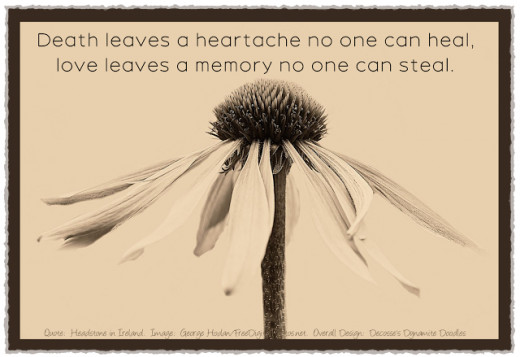
8. Remember to live everyday to the fullest. Life is meant to be lived. When coping with the untimely death of a loved one, it can be difficult to want to live life, especially if the loss of a loved one was someone you were close to. Think about how your loved one lived and how your loved one would want to you live after they have passed away. Most people don’t want their loved ones grieving after they have passed away and the same goes for the loved one you have lost, so live your life for them. It will be challenging, especially if you feel as though that person was your life, but the reality is that life must go on after the death of someone. Some people choose to start up new hobbies or partake in activities. Some people may want to take a trip somewhere to clear their mind and have new experiences. There is no right or wrong way, as everyone will find fulfillment in different things. As mentioned in regards to physical exercise and health, taking the opportunity to live life to the fullest will give you control in a time when you may feel as though you don’t have much control. It’s a healthier way of coping with the loss of a loved one rather than choosing to remain isolated.
Some people feel guilty or bad for living life to the fullest after their loved one has passed away because their loved one isn’t on this earth to experience life with them. It’s perfectly okay for your life to move forward after the loss of someone. You shouldn’t allow your life to stop, but rather find ways for life to normalize after the untimely death of a loved one. It will take some adjustments, but the more you allow yourself to live life, the easier it will become to move forward.
9. Celebrate the life of your loved one. Many people fear that if they move on from the death of their loved one, they’ll forget that person. Moving on does not mean you are forgetting that person. Instead of a funeral to grieve the loss of your loved one, have a celebration of their life, their love, their achievements, and the joy they brought to everyone. Pick a time every year to remember that person and do something in honor of them. Maybe you pick to celebrate their birthday or a milestone in their life. Maybe you choose to remember them on the day they passed away. Moving on doesn’t mean you’re forgetting that person and just because they aren’t physically here on this earth doesn’t mean that you can’t celebrate their life.

